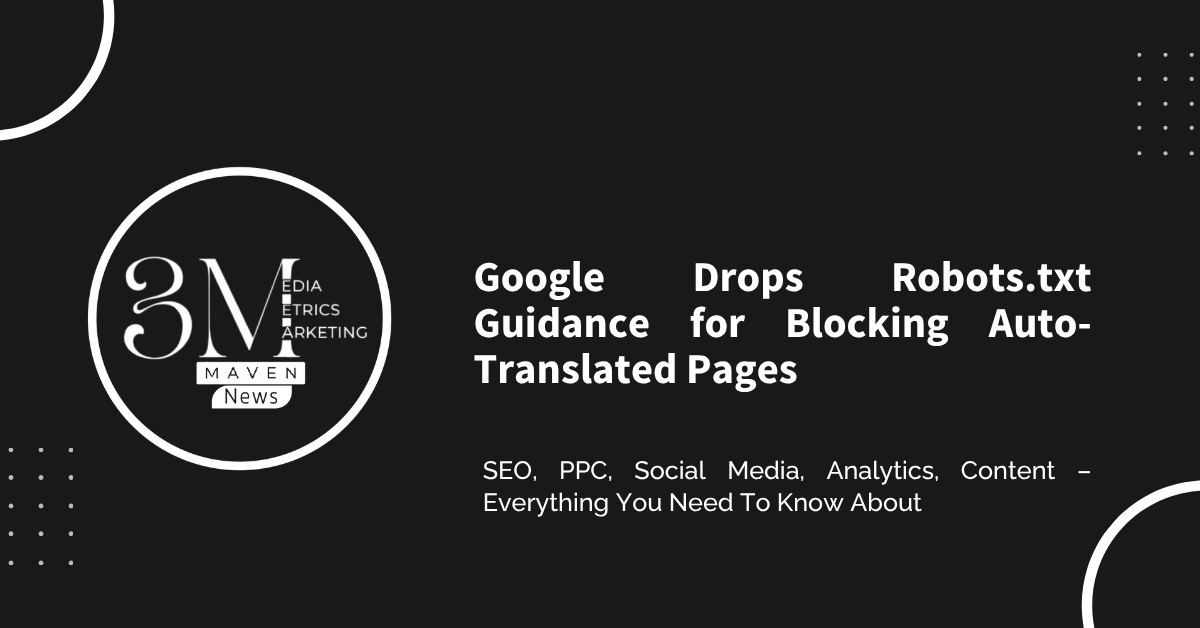In a recent update, Google has removed its previous guidance suggesting that website owners use the robots.txt file to block auto-translated pages from being crawled. This change indicates a shift in how Google handles automatically translated content on websites.
Previously, Google recommended blocking such pages via robots.txt to prevent them from appearing in search results. However, the updated documentation no longer includes this advice, signaling that it’s now acceptable — and perhaps even beneficial — for auto-translated pages to be indexed.
Google’s new stance implies that auto-translated content won’t be penalized as long as it adds value for users and doesn’t mislead them. This aligns with Google’s broader efforts to index and serve content in the language most relevant to each user.
Webmasters should now focus on ensuring that translated pages are high-quality, clearly labeled, and provide a good user experience rather than trying to block them from being crawled.
This move reflects Google’s growing recognition of the importance of multilingual content and its commitment to making the web more accessible across different languages and regions.










